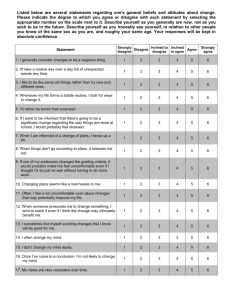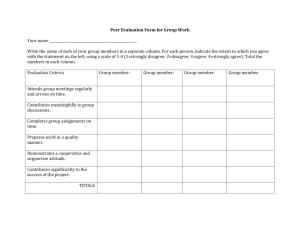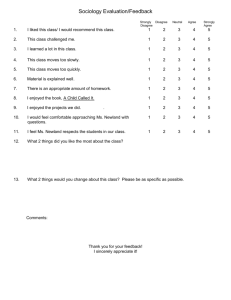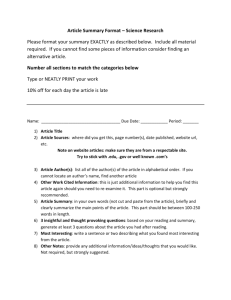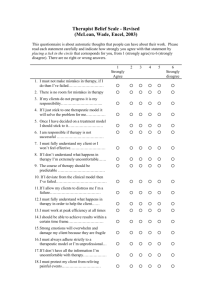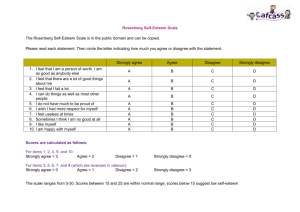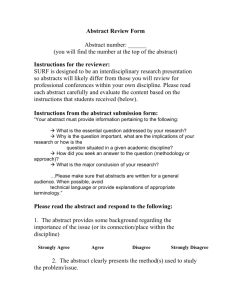1-7 Cultural Proficiency Receptivity Scale – A Process of Self
advertisement
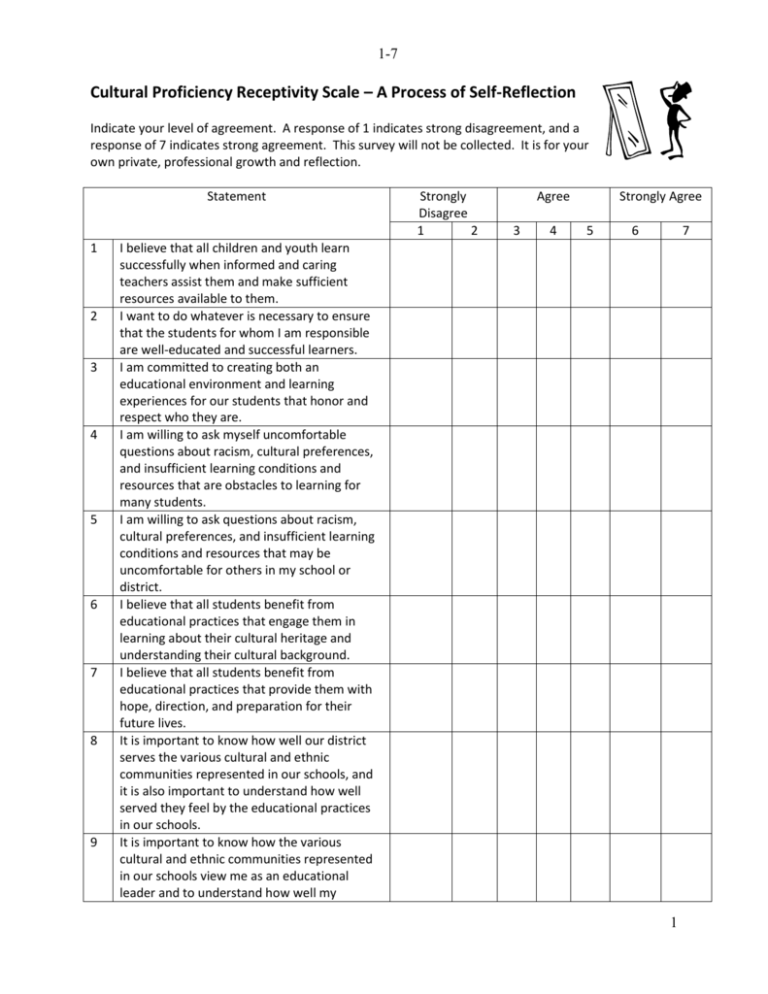
1-7 Cultural Proficiency Receptivity Scale – A Process of Self-Reflection Indicate your level of agreement. A response of 1 indicates strong disagreement, and a response of 7 indicates strong agreement. This survey will not be collected. It is for your own private, professional growth and reflection. Statement 1 2 3 4 5 6 7 8 9 Strongly Disagree 1 2 Agree 3 4 Strongly Agree 5 6 7 I believe that all children and youth learn successfully when informed and caring teachers assist them and make sufficient resources available to them. I want to do whatever is necessary to ensure that the students for whom I am responsible are well-educated and successful learners. I am committed to creating both an educational environment and learning experiences for our students that honor and respect who they are. I am willing to ask myself uncomfortable questions about racism, cultural preferences, and insufficient learning conditions and resources that are obstacles to learning for many students. I am willing to ask questions about racism, cultural preferences, and insufficient learning conditions and resources that may be uncomfortable for others in my school or district. I believe that all students benefit from educational practices that engage them in learning about their cultural heritage and understanding their cultural background. I believe that all students benefit from educational practices that provide them with hope, direction, and preparation for their future lives. It is important to know how well our district serves the various cultural and ethnic communities represented in our schools, and it is also important to understand how well served they feel by the educational practices in our schools. It is important to know how the various cultural and ethnic communities represented in our schools view me as an educational leader and to understand how well my 1 1-7 Statement 10 11 12 13 14 15 Strongly Disagree Agree Strongly Agree leadership serves their expectations. Our district and schools are successful only when all subgroups are improving academically and socially. Cultural discomfort and disagreements are normal occurrences in a diverse society such as ours and are parts of everyday interactions. I believe that lack of cultural understanding and historic distrust can result in cultural discomfort and disagreements. I believe we can learn about and implement diverse and improved instructional practices that will effectively serve all our students. I believe we can use disaggregated data to understand more precisely the achievement status of all students in our schools, and that we can use that information to identify and implement effective instructional practices for each of them. As a leader, it is important for me to be able to communicate across cultures and to facilitate communication among diverse cultural groups. Culturally Proficient Inquiry, Lindsey, Graham, Westphal, Jew, 2008 2
